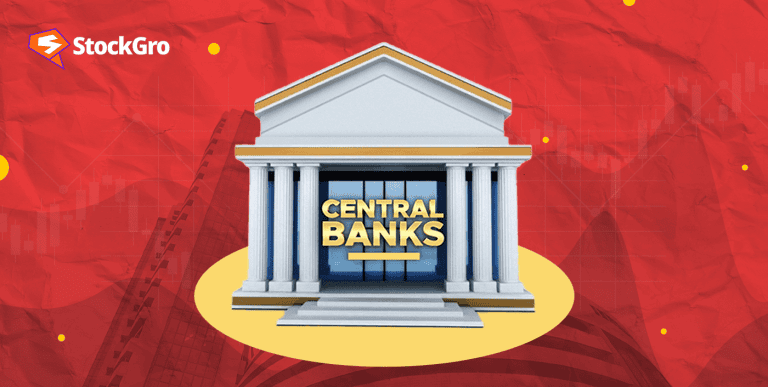
In the realm of corporate financing, startups and small firms have traditionally turned to conventional approaches such as bank loans, venture capital, and angel investments. However, these paths can include strict eligibility criteria, drawn-out approval procedures, and less control for founders.
One amazing substitute that has surfaced is crowdfunding. Using the internet helps companies pool limited resources from many different people, therefore changing the way small firms and startups can get finance.
With a compound annual growth rate (CAGR) of 16.5%, the $32.93 billion crowdfunding business is expected to explode. This explosion emphasises how popular crowdsourcing is becoming a workable source of money, especially for small companies and startups.
This article will explore the transformative role of crowdfunding investment, especially crowdfunding for business startups.
What is crowdfunding?
Crowdfunding is a modern method of raising money that involves collecting small contributions from a large group of people, typically through online platforms. This approach has gained popularity among startups and growing companies as an alternative to traditional financing methods such as bank loans and venture capital.
How does crowdfunding work?
Crowdfunding begins with a business setting a clear fundraising goal, whether it’s for product development, expansion, or another purpose. Entrepreneurs select a crowdfunding platform suited to their project and target audience.
The platform acts as the medium where backers, usually individual investors or customers, can pledge money in exchange for rewards, equity, or interest depending on the type of crowdfunding. Entrepreneurs must then market their campaign to reach potential backers, engaging them throughout the process and keeping them updated.
The primary stakeholders in crowdfunding include the business owners or entrepreneurs who are raising funds, the backers or investors who contribute funds, and the crowdfunding platform that facilitates the process.
Types of crowdfunding
Startups have four basic options when thinking about crowdsourcing, each with special benefits catered to particular corporate needs. These choices are broken out here:
Reward-based crowdfunding
Under reward-based crowdfunding, backers of a startup pay money in exchange for a “reward,” usually a good or service the business intends to provide. Startups introducing new goods or services requiring financial help for production or development especially find great appeal in this strategy.
| Pros | Cons |
| No loss of ownership: Unlike equity crowdfunding, you retain full ownership of your business. | All-or-nothing model: Many crowdfunding platforms operate on an all-or-nothing basis, which means that if you fail to reach your funding target, you will not receive any funds. Although this is not consistently accurate, it is not an uncommon occurrence. |
| Market validation: A good campaign confirms the feasibility of your product by indicating real market interest. | Reward fulfilment: Giving promised benefits can be expensive and difficult; if expectations aren’t satisfied, you run the danger of losing credibility. |
| Pre-sales and promotion: As pre-sales, these tactics can create hype and first client interest. | Uncertain success: Not every campaign is successful, hence mistakes could mislead you on the market need for your concept. |
| Community engagement: Interaction with backers made possible by crowdfunding sites helps to create a supportive community around your project. | Public exposure: Publicly sharing your idea could cause rivals to copy it. |
| Fees: Usually charging fees, crowdfunding sites cut the overall amount raised by a particular percentage. |
Equity-based crowdfunding
Under equity-based crowdfunding, backers pay for shares in your company in return for their investment. Startups with great growth potential seeking significant capital often adopt this technique.
| Pros | Cons |
| Long-term relationships: This helps to build continuous relationships with investors who value the performance of your business. | Loss of ownership: You give away some of your business, therefore weakening your influence over choices. |
| Access to expertise: Early-stage businesses gain from the often useful knowledge and networks that investors provide. | Increased reporting: Regular updates and financial reports could be required, therefore wasting resources. |
| Pressure for returns: Investors want financial returns, which drives performance pressure. | |
| Potential dilution: Future fundraising might reduce the shares of past investors, which might cause discontent. |
Debt-based crowdfunding
Debt-based crowdfunding, sometimes known as peer-to-peer financing (P2P lending), lets entrepreneurs apply for loans from a pool of investors instead of conventional banks.
| Pros | Cons |
| Ownership retention: Since you pay back the loan without equity exchange, you keep all control over your company. | Repayment obligation: Loans must be repaid with interest, creating a fixed financial burden regardless of business performance. |
| Faster process: With less rigorous criteria, obtaining a loan can be faster than those from conventional banks. | Interest costs: The whole payback affects the general financial situation by including interest as well as the principal. |
| Fixed repayment schedule: You will have a predetermined repayment schedule, which may be more manageable than the unpredictable nature of equity investments. | Credit score risk: If you are unable to make your loan repayments, your credit score may be impacted, which may ultimately impact your ability to obtain financing in the future. |
| Collateral risk: Certain loans could call for collateral, therefore endangering assets should repayments be missed. |
Donation-based crowdfunding
Nonprofits, social entrepreneurs, and startups—where the return on investment is more social than financial—mostly use this strategy. Not anticipating financial benefits, backers donate money since they believe in the cause.
| Pros | Cons |
| No repayment required: Donors help to reduce the financial load by lending money without expecting a return. | Limited appeal: Emotional initiatives might not draw a large audience, which makes funding more difficult. |
| Support for social causes: Especially successful for community-oriented initiatives that appeal to possible sponsors emotionally. | Lack of guaranteed funding: No assurance of meeting your funding target; some platforms refuse to disburse money should objectives fall short. |
| Community engagement: Creates an emotional investment by building a supporting community around the cause. | Public exposure: Like other models, your idea could be copied by rivals. |
| Platform fees: Fees determined by the money generated can lower the overall project funding available. |
Also read: Understanding equity crowdfunding: An investment revolution
Role of crowdfunding for businesses
- Accessible funding: Crowdfunding provides an easier, more direct way for startups and small businesses to raise funds, bypassing the strict requirements and long processes of traditional financing like bank loans or venture capital.
- Direct reach to investors: Entrepreneurs can connect with potential backers directly through crowdfunding platforms, streamlining the fundraising process and removing financial gatekeepers.
- Support for early-stage businesses: Crowdfunding offers financial backing to early-stage companies that may not qualify for traditional financing, providing a crucial lifeline for growth. Since 2023, crowdfunding platforms have raised more than $750 million for seed ventures in India, providing essential financial support to early-stage companies. By the first half of 2024, the number of generative AI (GenAI) ventures had increased to more than 240, a result of substantial investments in the sector.
- Market validation: A successful crowdfunding campaign demonstrates real market demand for a product or service, as backers’ financial support reflects their interest, offering valuable feedback for businesses.
- Product development: Crowdfunding allows companies to tweak and refine their products based on early backer feedback before launching to a wider audience, reducing the risk of market rejection.
- Community building: Crowdfunding fosters a sense of community by allowing companies to engage with early supporters, turning them into loyal customers and brand advocates who can organically spread awareness.
- Cost-effective marketing: Early backers often act as word-of-mouth promoters, helping businesses increase their reach without heavy marketing investment, and enhancing brand visibility and growth.
You may also like: The startup saga: Tracing the growth of India’s entrepreneurial landscape
Advantages of crowdfunding
Start-ups and small companies find crowdfunding appealing because of its several advantages. Here are several main benefits:
- Accessible capital: Anyone with a reasonable company idea can participate in crowdfunding, which offers a path for entrepreneurs who would not be eligible for conventional financing sources such as venture capital or bank loans. This lets a wide range of initiatives come to life and democratises financial access.
- Diversified investment sources: Crowdfunding lessens reliance on a single investment by aggregating modest sums of money from many sponsors. This diversification can especially help to reduce risks and guarantee that the project does not depend on the vagaries of one financing source.
- Increased public exposure: Usually, crowdfunding serves as a marketing technique as well. Campaigns can raise major public interest and media attention, therefore raising the profile of the company. This visibility can serve to establish a brand and draw possible consumers even before the good or service is introduced.
- Minimal financial risk: Unlike conventional financing sources, crowdsourcing usually does not demand businesses to give up any equity or major control. This helps business owners to keep control and decision-making ability. Moreover, unlike loans, there is no obligation to pay back money, therefore lowering financial stress.
Challenges of crowdfunding
Although crowd-funding has numerous advantages, companies still have to negotiate a lot of difficulties.
- Competition for attention: The sheer volume of campaigns on crowdsourcing sites might make any one project tough to stand out from. Businesses that want to flourish must have a strong marketing plan that will grab the interest of possible investors. This covers striking images, a convincing narrative, and ongoing audience interaction.
- Time-consuming: Starting a good crowd-funding effort takes time. It can take several months and calls for thorough planning, producing interesting material, and ongoing promotion. From writing the first pitch to keeping momentum all through the campaign, the time commitment is substantial.
- Fees and regulations: Most crowdsourcing sites levy fees, which could eat into the money gathered. Equity crowdfunding also comes with legal obligations that have to be followed, which could complicate and expense the campaign.
- Risk of failure: Campaigns involving crowdsourcing are not assured of success. An unsuccessful campaign may leave a company without money generated and may damage its standing. Without a well-considered plan and proactive engagement strategy, failure is especially likely.
Notwithstanding these obstacles, many companies discover that the possible benefits of crowdsourcing exceed the risks, so it becomes a good choice for funding their projects.
Crowdfunding in India and its regulations
In India, non-profit organisations enjoy tax exemptions when they make use of crowdfunding platforms. When you contribute to specific charitable organisations, you can enjoy tax benefits under Section 80G of the Income Tax Act, of 1961.
However, it’s important to note that individuals receiving these donations may be liable for income tax. To ensure compliance with legal standards, the Foreign Contribution Regulation Act (FCRA) requires organisations receiving foreign donations to secure an FCRA certificate.
India’s crowdfunding regulatory landscape is continuously evolving. The framework is organised according to the different types of crowdfunding available:
- Donation-based crowdfunding: This is controlled by the Social Stock Exchange structure set up by SEBI. According to SEBI’s circular about Social Stock Exchanges, this system makes it easy for social businesses to raise money undoubtedly.
- Peer-to-peer lending: Peer-to-peer lending is regulated by the Reserve Bank of India (RBI) through its rules for Non-Banking Financial Companies (NBFC). These rules are meant to protect both lenders and customers and make sure that lending is done in a responsible way.
- Securities-based crowdfunding: Using crowdfunding to sell securities comes with a lot of legal problems. After the Supreme Court’s decision in the Sahara case, which showed how private placement rules under the Companies Act, 2013 were abused, equity-based crowdfunding was effectively banned. Private placements can only be made to up to 200 people, and they can’t be advertised to the public at all. This makes them incompatible with normal crowdfunding methods.
Crowdfunding vs. traditional financing
| Crowdfunding finance | Traditional finance | |
| Speed | Usually, within weeks, campaigns can generate quick money. Not all campaigns, meanwhile, are successful, and financing is not assured. | Long application procedures need weeks or months of waiting for approval. Negotiations in venture capital can last even longer. |
| Control | Startups keep total control since, except in equity-based crowdfunding, there is no need to give up stock. | Giving up ownership interests is common in venture capital, and investors could wish to have a role in company choices. |
| Cost | Reduced upfront expenses; platforms charge fees. Not interested in most kinds. | While venture capital may not have direct expenses, it includes diluting equity; loans come with interest rates and legal fees. |
| Risk | If the campaign fails, minimal financial risk; yet, should promises or rewards fall short, the company may suffer in reputation. | Ignoring loan repayments could lower credit scores and result in asset seizure—for secured loans. VC wants better performance standards. |
Also read: How to choose between crowd funding and business loans for your next venture
Bottomline
Crowdfunding has revolutionised fundraising for startups and small businesses by offering a flexible alternative to traditional financing like bank loans and venture capital. It not only provides essential funds but also validates business ideas, builds early customer relationships, and boosts brand awareness.
Despite challenges such as market competition, platform fees, and time-consuming campaign management, crowdfunding’s benefits—like retaining control, reducing financial risk, and diversifying funding sources—make it an attractive option for entrepreneurs. With strong community support, crowdfunding continues to be a powerful tool for turning innovative ideas into reality.
FAQs
How does crowdfunding work for a small business?
By presenting their ideas on internet sites, crowdfunding helps small enterprises gather money. Presenting their ideas to a large audience that can donate small sums of money, entrepreneurs hope backers could be rewarded, equity, or just the gratification of helping a business. This approach helps companies prove their ideas, get financial assistance, and assemble a community of early adopters.
What is the investment crowdfunding strategy?
Crowdsourcing is the process of gathering funds from many investors using Internet channels. Startups or small enterprises propose their offerings, and investors provide money in return for debt or stock. This approach gives companies a wide range of possible investors, helps them diversify their funding sources, and provides financial support together with a stake in the future of the company.
Is crowdfunding a good investment?
A remarkable investment, crowdfunding gives chances to help creative ideas and maybe yield profits. Still, it runs hazards including lack of finance and project failure. Investors should carefully review every possibility taking into account the business plan, staff, and market possibilities. Understanding the rules of the platform and diversifying investments help to reduce risks and improve the possibilities of success.
Is crowdfunding legal in India?
Yes, crowd-funding is permitted in India. There are several types including debt crowding, reward, and charity. However regulatory restrictions by the Securities and Exchange Board of India (SEBI) now forbid equity-based crowdfunding. Provided they follow the pertinent rules, entrepreneurs can legally generate money by pre-selling goods, reward offerings, or platforms for social purposes.
What is the purpose of crowdfunding?
Usually via online platforms, crowdsourcing is meant to generate money for initiatives, businesses, or causes by aggregating modest donations from many individuals. It provides financial support, validation of ideas, and a community of early supporters for innovators and business owners. By democratising access to finance, crowdfunding helps to realise creative ideas free from depending just on conventional funding sources.

